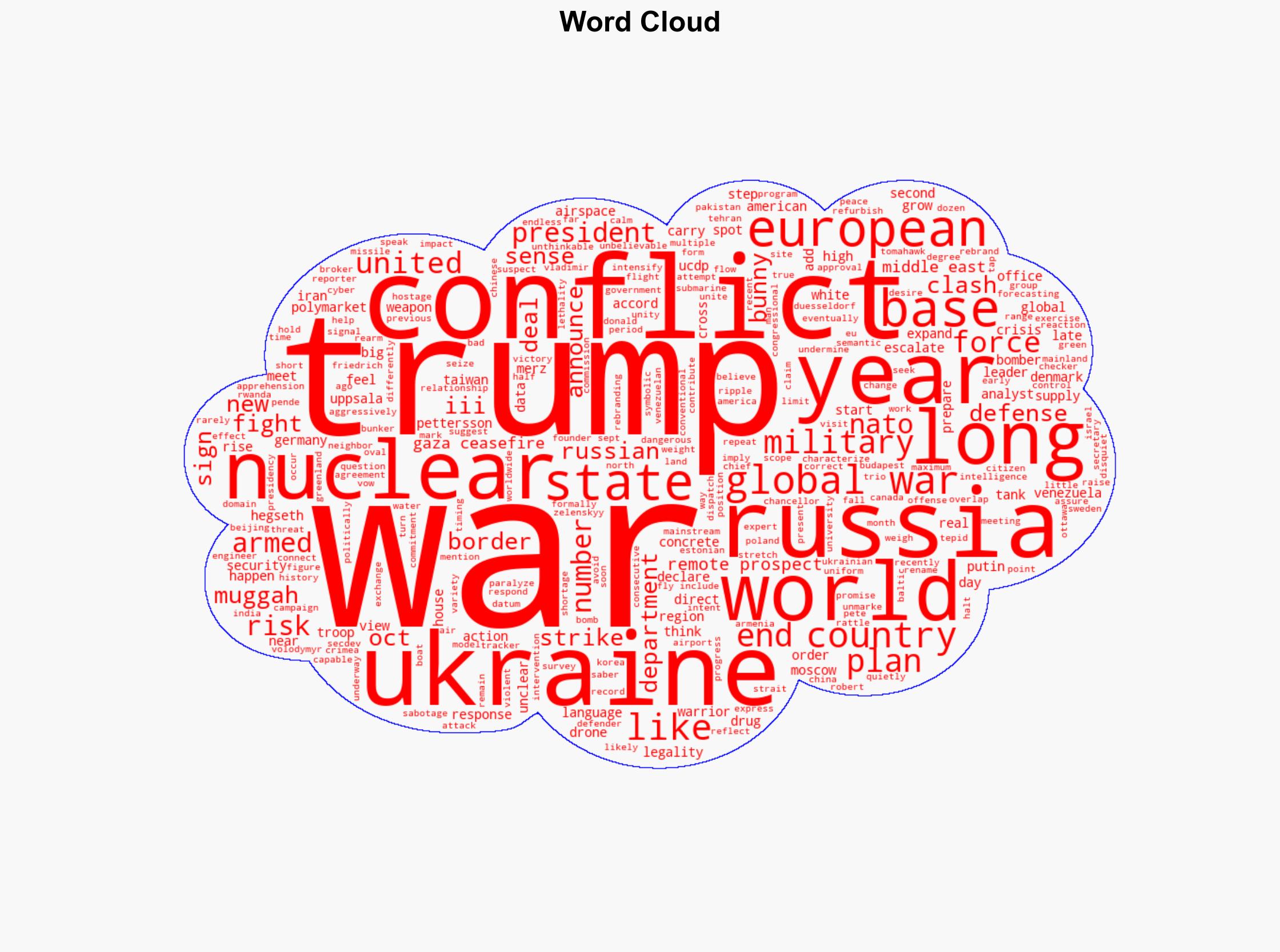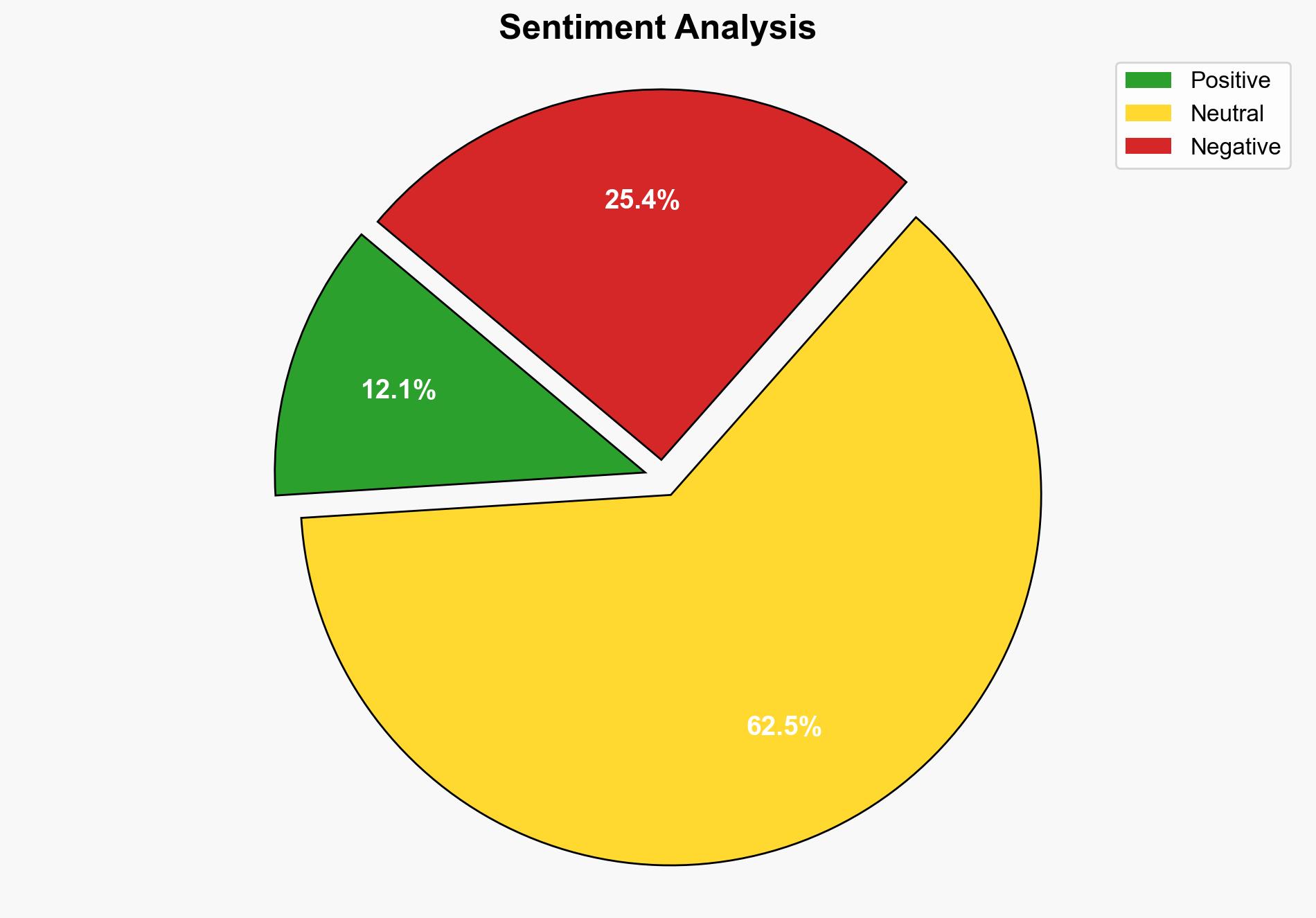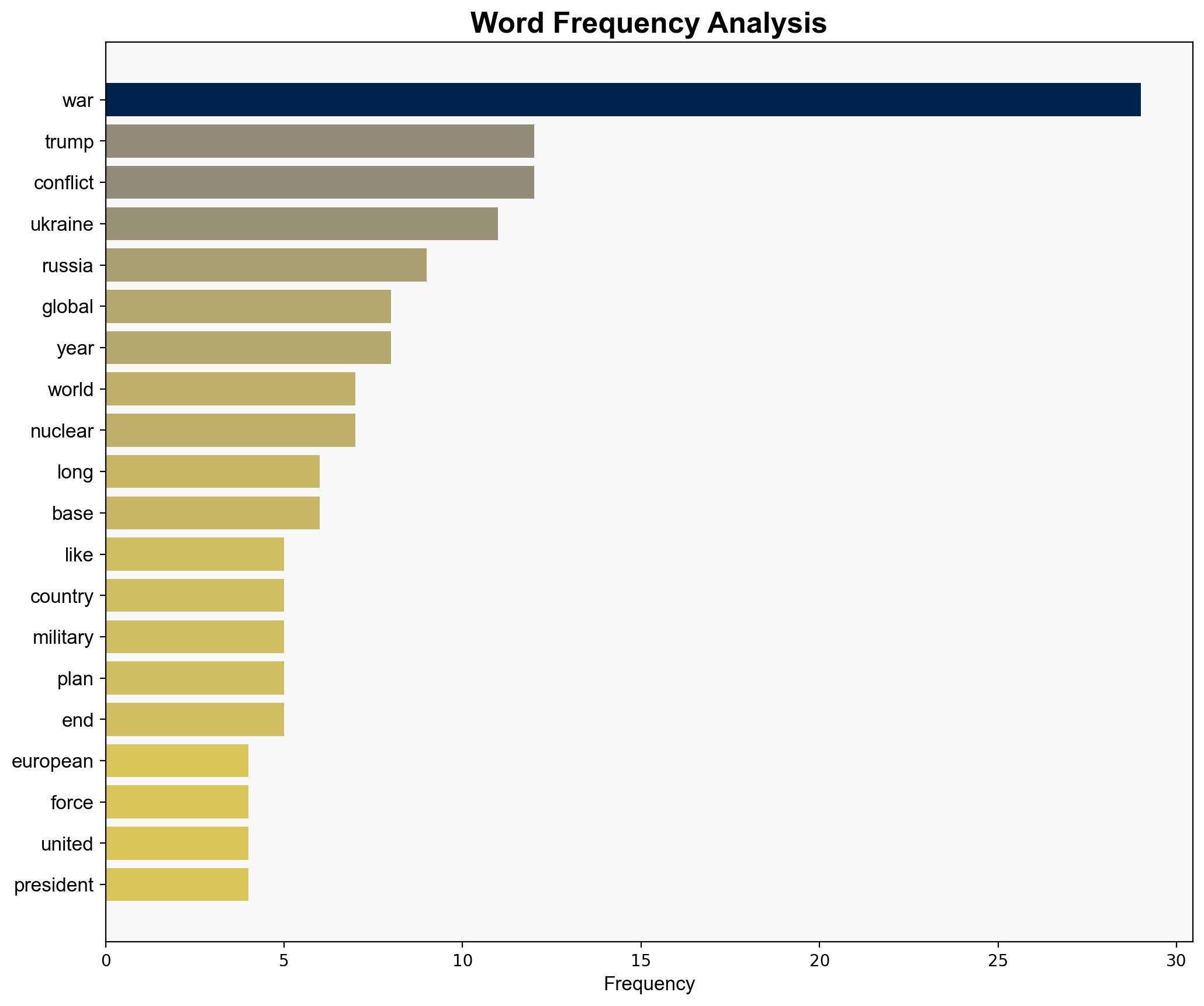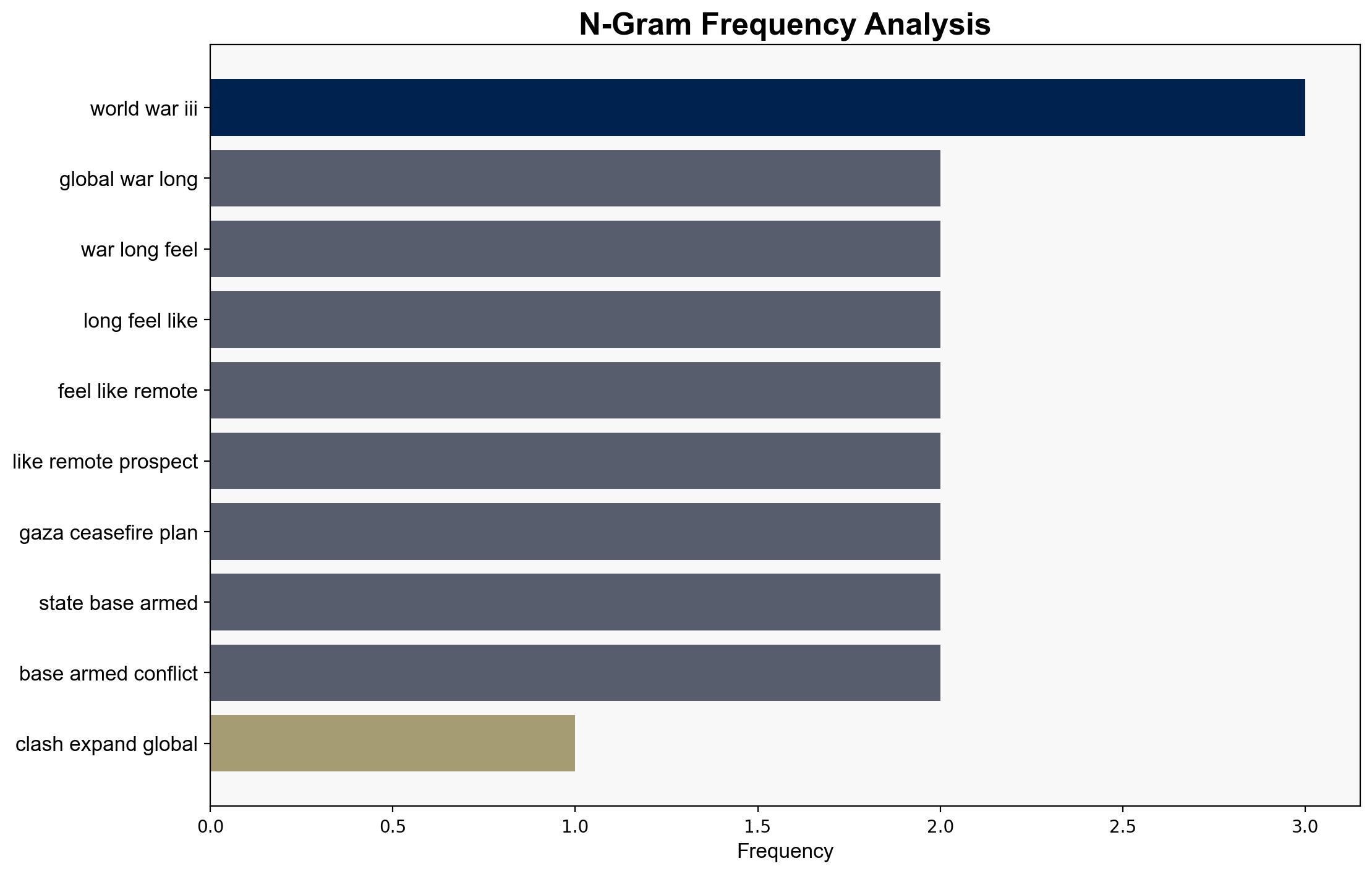‘Clash that could expand’ Why global war no longer feels like remote prospect – USA Today
Published on: 2025-10-17
Intelligence Report: ‘Clash that could expand’ Why global war no longer feels like remote prospect – USA Today
1. BLUF (Bottom Line Up Front)
The likelihood of a global conflict is increasing, driven by overlapping regional tensions and military posturing. The hypothesis that global war is becoming a more immediate threat is better supported by current intelligence. Recommended actions include enhancing diplomatic engagements and reinforcing cyber defenses. Confidence level: Moderate.
2. Competing Hypotheses
Hypothesis 1: Global war is becoming a more immediate threat due to escalating regional conflicts and military activities.
– Evidence includes increased military exercises by Russia and China, cyber threats, and heightened tensions in regions like Taiwan and Ukraine.
Hypothesis 2: The perception of an imminent global war is exaggerated, driven by political rhetoric and media sensationalism.
– Evidence includes the absence of formal declarations of war and ongoing diplomatic efforts to de-escalate tensions, such as proposed meetings between leaders.
Using ACH 2.0, Hypothesis 1 is more strongly supported by the convergence of military actions and geopolitical tensions across multiple regions.
3. Key Assumptions and Red Flags
– Assumption: Military exercises and cyber activities directly correlate with the likelihood of war.
– Red Flag: Potential bias in media reporting and political statements may exaggerate threats.
– Missing Data: Lack of concrete evidence on the intentions behind military posturing.
4. Implications and Strategic Risks
The convergence of military activities and geopolitical tensions poses risks of miscalculation and unintended escalation. Economic disruptions could arise from conflicts, particularly in regions critical to global trade. Cyber threats could undermine national security and public trust. Psychological impacts include increased public fear and pressure on governments to act.
5. Recommendations and Outlook
- Enhance diplomatic efforts to reduce tensions, particularly in hotspots like Taiwan and Ukraine.
- Strengthen cyber defenses to mitigate risks of cyber attacks and protect critical infrastructure.
- Scenario Projections:
- Best Case: Successful diplomatic engagements lead to de-escalation and renewed peace talks.
- Worst Case: Miscalculations lead to regional conflicts escalating into broader warfare.
- Most Likely: Continued tensions with intermittent diplomatic efforts preventing full-scale war.
6. Key Individuals and Entities
– Friedrich Merz
– Robert Muggah
– Donald Trump
– Vladimir Putin
– Volodymyr Zelenskyy
7. Thematic Tags
national security threats, cybersecurity, counter-terrorism, regional focus





